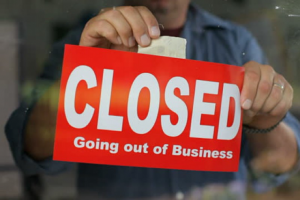
“With the reimplementation of the MCO, businesses are again expected to lose all revenue streams, especially the tourism industry, when interstate travels are now restricted,” said Malaysian Association of Hotels CEO.
The Covid-19 pandemic will have devastating effects on the Malaysian economy from both external factors (global supply and demand shocks) and domestic factors (MCO). Critically, this will disproportionately impact smaller businesses and vulnerable groups such as lower-income individuals and workers.
In a recession, cash flow management becomes even more important, and being prudent may help save a business during tough economic times. Cash flow management needs to be an integral element of a company’s overall COVID-19 risk assessment and action planning in the near term. Even for companies that have not yet been adversely affected, we recommend management teams with concerns about COVID-19 actively evaluate their cash flow requirements, develop appropriate actions under various scenarios, and assess potential risks in and to their customer base and supplier network.
The following are how cash flow projection works to overcome Covid-19 pandemic:
1. Ensure your own financing remains viable.
In these circumstances, don’t assume the financing options you previously had available to you will continue to be available. Undertake scenario planning to better understand how much cash you’ll need and for how long.
Tips: Use this opportunity to actively engage with your financing partners to ensure your available lines of credit remain available, and to explore new or additional options should you require them.
2. Focus on the cash-to-cash conversion cycle.
In the current abnormal business conditions, smart companies are shifting their focus from the income statement (profit & losses) to the balance sheet (turning receivables into cash).
3. Revisit capital investment plans.
With cash flow forecasts in mind, consider what’s really necessary for the near term. What capital investments can be postponed until the situation improves? What capital investments should be reconsidered? What capital investments are required to position for the rebound and for creating competitive advantage?
4. Manage and expedite receivables.
Maintain cash reserves. Especially during a recession, a business’s very survival may depend on having cash on hand to maneuver through shortfalls. Best practice usually means having enough cash reserves to last a 3-6-month period. Another way of mitigating shortfalls would be to extend accounts payable for as long as possible. This means paying suppliers on the longest possible terms without paying late fees.
Tips: Don’t be surprised if your customers are thinking about doing the same thing to you. That’s why it’s important to improve the rigour of your collection processes.
Conclusion
As a business owner, it is essential to understand your current cash flow and regularly project what your cash-flow situation will be in the coming months. Poorly planned spending can create major problems by leaving businesses unable to pay off short-term financial obligations or lead to more serious possibilities, like bankruptcy.
Feel free to contact us for any further assistance.



